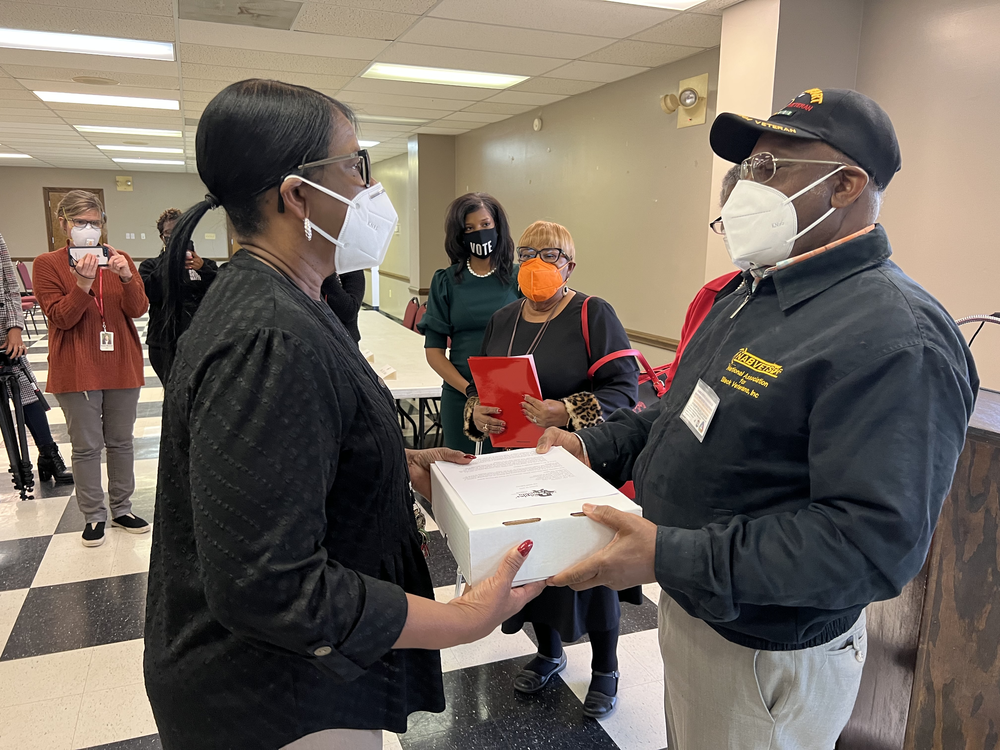
Caption
Voting rights groups deliver a petition to temporarily halt the consolidation of Lincoln County's seven polling places into one. The county seat of Lincolnton, population 1,500, is located about 50 miles northwest of Augusta.
Credit: Stephen Fowler/GPB News

